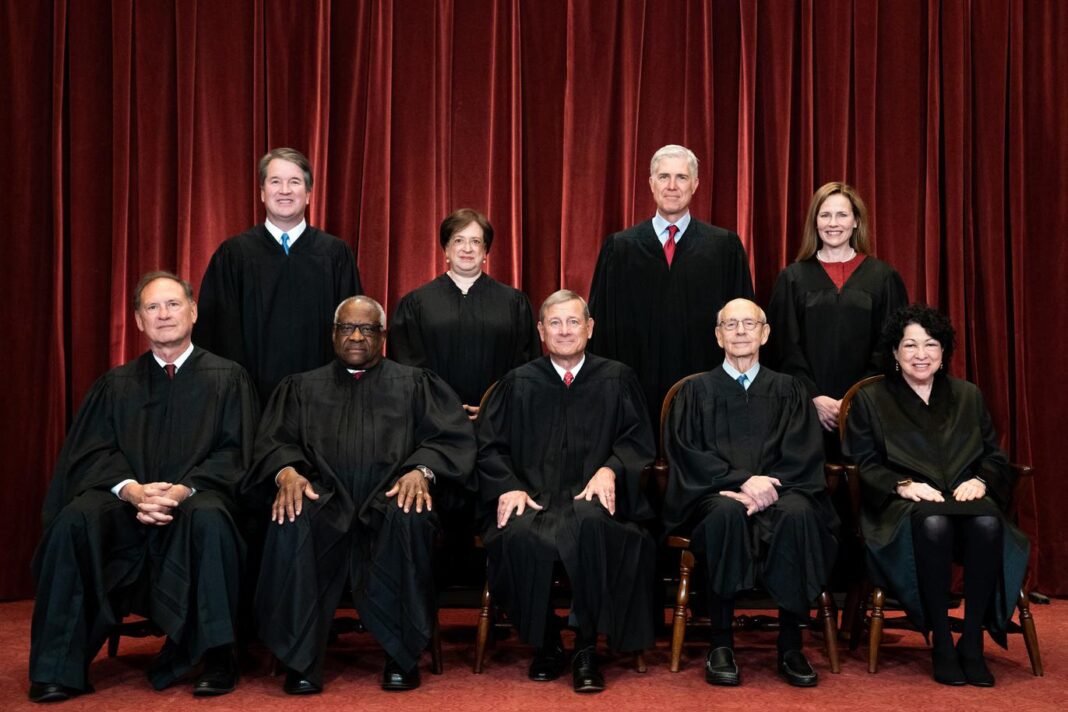Policy In Another Victory For Religious Conservatives, The Supreme Court Struck Down Maine’s Prohibition Against Funding Religious Schools Michael Bobelian Contributor Opinions expressed by Forbes Contributors are their own. Author of Battle for the Marble Palace New! Follow this author to improve your content experience. Got it! Jun 21, 2022, 08:32pm EDT | Share to Facebook Share to Twitter Share to Linkedin In a 6-3 ruling further expanding religious interests, the Supreme Court’s conservative majority struck down a Maine program prohibiting government vouchers to religious schools.
The exclusion of religious schools from a program that is otherwise available to private schools, Chief Justice John Roberts Jr. concluded in the majority opinion, “is discrimination against religion. ” While the scope of the ruling in Carson v.
Makin may be limited to Maine’s sparsely populated areas, its consequences could be far reaching, opening the door to increased government funding of religious institutions that might, as Justice Stephen Breyer noted in his dissent, risk “the very social conflict based on religion” that the Constitution’s drafters sought to avoid. The case arose out of Maine’s program, which provided students living in thinly populated areas lacking a public school the option of using government funding to pay for private schools as long as these schools didn’t provide religious instruction. In all, less than half of Maine’s 260 school systems operated a public secondary school.
Two sets of parents opting to send their children to Christian schools sued the state, arguing that the exclusion of religious schools from the program violated the First Amendment—namely the Free Exercise clause guaranteeing religious liberty. WASHINGTON, DC – APRIL 23: Members of the Supreme Court pose for a group photo at the Supreme Court . .
. [+] in Washington, DC on April 23, 2021. Seated from left: Associate Justice Samuel Alito, Associate Justice Clarence Thomas, Chief Justice John Roberts, Associate Justice Stephen Breyer and Associate Justice Sonia Sotomayor, Standing from left: Associate Justice Brett Kavanaugh, Associate Justice Elena Kagan, Associate Justice Neil Gorsuch and Associate Justice Amy Coney Barrett.
(Photo by Erin Schaff-Pool/Getty Images) Getty Images The parents’ objections collided head on with Maine’s reliance on the Establishment clause, another provision within the First Amendment prohibiting government support of religion. The two clauses, Breyer explained, “are frequently in tension… and often ‘exert conflicting pressures’ on government action. ” Historically, the Court’s interpretation of these constitutional provisions allowed states to bar funds to religious institutions such as churches or parochial schools even if doing so conflicted with the Free Exercise clause.
MORE FOR YOU Biden’s Proposed IRS Bank Account Snooping Authority Runs Into State Resistance 2021 Diversity Green Card Lottery Winners To Be Shut Out Because Of Visa Deadline The Swamp Grew – Even Under President Donald Trump In recent years, the Court’s conservatives have tipped the balance in the opposite direction. In 2017, the Court held that the Free Exercise clause prohibited the government from excluding a church from receiving benefits that were otherwise available to other institutions—in that case, funds for a playground. Three years later, the Court held that if a state chooses to subsidize private education through scholarships, it cannot exclude students who plan to use those funds to attend a religious school.
Heavily cited by the majority, both cases played a key role in the Carson ruling. This time around, however, the Court went beyond these recent precedents to declare that the Free Exercise clause not only prohibited religious discrimination based on an institution’s “religious status” but also applied even when state funds were used for a religious purpose. While Breyer argued for some discretion in the interplay between the First Amendment’s two religion clauses in supporting Maine’s school funding program, Roberts concluded that Maine’s promotion of a “stricter separation of church and state” than was required by the Constitution could not stand “in the face of the infringement” of the Free Exercise clause.
Breyer also castigated the majority for emphasizing the Free Exercise clause while paying “almost no attention” to the Establishment clause. Doing so, he warned, undermined the “compromise in the form of religious freedom” established by the Constitution’s founders that was meant to avoid the sectarian strife that had afflicted Europe for centuries. Roberts dismissed these concerns.
“As noted,” he wrote, “a neutral benefit program in which public funds flow to religious organizations through independent choices of private benefit recipients does not offend the Establishment Clause. ” Though Carson considered whether funding religious institutions or activities violated the establishment clause, it fell within a larger umbrella of cases involving the role of religion in the nation’s constitutional framework. Hobby Lobby , a case in which a closely-held corporation opted out of covering insurance for contraception that was required by the Affordable Care Act, and Masterpiece Cakeshop , a case out of Denver in which a baker refused to prepare a cake for a gay nuptial, dealt with religious exemptions to anti-discrimination laws or government mandates.
The series of conservative victories contributed to Justice Sonia Sotomayor’s strident warning. “This Court,” she wrote in the opening line of her dissent, “continues to dismantle the wall of separation between church and state that the Framers fought to build. ” Follow me on Twitter .
Check out my website or some of my other work here . Michael Bobelian Editorial Standards Print Reprints & Permissions.
From: forbes
URL: https://www.forbes.com/sites/michaelbobelian/2022/06/21/in-another-victory-for-religious-conservatives-the-supreme-court-struck-down-maines-prohibition-against-funding-religious-schools/



